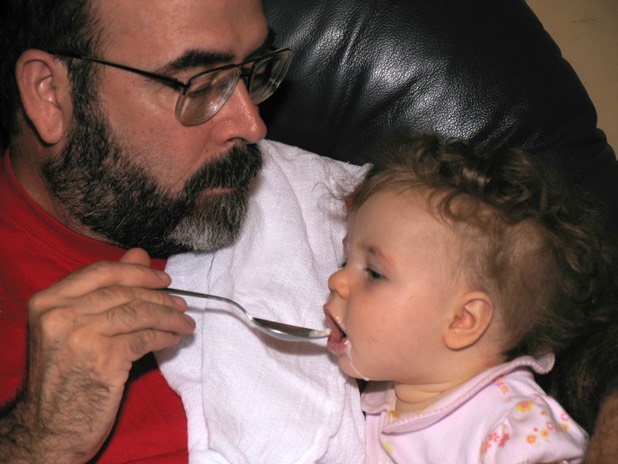
“Good job!” has a nice ring to it. It is frequently used as a compliment in the Zeb family. However, Mother and Father Zeb have noticed that it doesn’t necessarily encourage children to do better. When teenage Zeb passes his driver’s test and the family shouts “Good job!” he starts telling how often he will need the car. When 4th grade Zeb passes her spelling test, the reward is “Good job!” She thinks, okay, that was good enough. I don’t need to study more and bring my score higher. If two-year-old Zeb puts three crayon scribbles on his paper, big sister Zeb says, “Good job!” But little Zeb throws the paper aside, puts two marks on the next paper, looks up for his reward, and reaches for another clean sheet.
So why doesn’t “Good job!” motivate children to achieve? Probably because it tells them that we like what they did instead of telling them what they did well, or finding out what they think.
But, but, you say, “I say good job all the time because I want to encourage my child.” Certainly you do, because you care, you love your children, and you want them to be successful. Your intentions are good, but try reading each of the following pairs of responses aloud. Say each of them with pride and pleasure in your voice, and think about how they might strike a child.
Teenager:
“Good job!” Or,
“You must be learning how to set priorities in order to get that long term paper done so well.”
School age:
“Good job!” Or,
“Hey, you got an A on that paper. Tell me how you did that.”
Four-year-old:
“Good job!” Or,
“I like the way you colored the flowers in your picture. What do you like?”
Two-year-old:
“Good job!” Or,
“You brought three books to me. Which one shall we read first?”
One-year-old:
“Good job!” Or,
“You got out from under the table all by yourself.”
How was that? Did it help you understand that a constant barrage of “good jobs” can create praise-junkies where children perform to get praise rather than to enhance their own skills and learn to develop their own internal reward system?
Other thoughts about “Good job!”
· “Good job!” is appropriate if we are teaching specific standards for a specific skill. Even then we need to point out why it is well done.
· “Good job!” is a way of telling a child to feel good about what he did. What if he doesn’t feel good? Need he act like he does to please us?
· Too much praise can program children to expect to be praised for everything they do. That is debilitating for them and boring for the rest of us.
· “Good job!” is well meaning, but it is lazy parenting.
· We can say we like something without telling the child she must like it. “I love the valentine you made for me. How did you know I would like a lace border?”
Over-nurture
Adults who had been overindulged as children (participants in the first of ten studies supporting the How Much Is Too Much? book) told us their parents had given them “too much love.” We call that over-nurture. What parents meant to be helpful turned out to be a liability, not an asset. So, let’s remember that saying “Good job!” is for our need, not the child’s. Whose needs are being met is one of the Test of Four ways to assess whether something is overindulging or not.
Whenever we want to say “Good job!” let’s hold fast to our good intentions and remember that our job is always to encourage growth and, only when necessary, to evaluate.
There is more help about avoiding overindulgence in How Much is Too Much? Raising Likeable, Responsible, Respectful Children – From Toddlers To Teens – In An Age of Overindulgence (2014, DaCapo Press Lifelong Books).
All photos from MorgueFile free photo.


